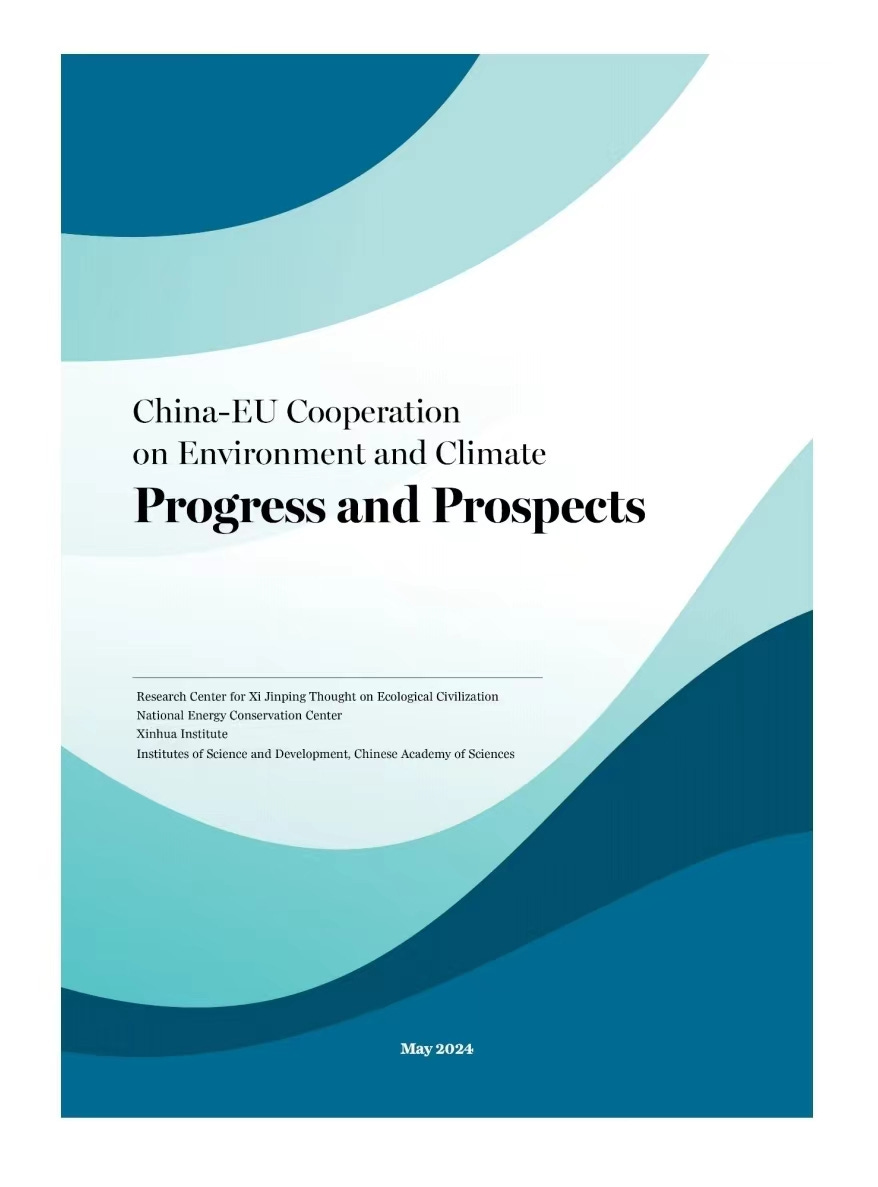China-EU Environmental and Climate Cooperation: A Comprehensive Overview
Report on China-EU Environment and Climate Cooperation Released Ahead of Xi’s Visit to Europe
Recently, the Xinhua Institute, in collaboration with our partner think tank, the Research Center for Xi Jinping Thought on Ecological Civilization, the National Energy Conservation Center, and the Institutes of Science and Development under the Chinese Academy of Sciences, completed a report titled "China-EU Cooperation on Environment and Climate: Progress and Prospects." At this time, as President Xi Jinping is visiting Europe, we hope that his visit will foster increased cooperation between China and European countries on environmental and climate issues. We look forward to sharing the contents of this report with our readers.
It consists of five sections, namely the introduction, bilateral joint efforts to build a community of all life on Earth, deepened bilateral cooperation to address climate change, concrete progress in bilateral cooperation on the eco-environment, and steady long-term development of bilateral cooperation concerning the environment and climate.
In the vibrant tapestry of international relations, the China-EU partnership on environment and climate stands out as a dynamic and forward-looking example of global cooperation. This partnership, rooted in a shared commitment to sustainable practices, has evolved from foundational dialogues to a sophisticated network of strategic engagements that address contemporary environmental challenges.
How has China-EU environmental cooperation evolved over the years?
The cooperation has transformed from a traditional donor-recipient dynamic to a robust strategic partnership. Initially focused on aid and foundational policy dialogues, it now encompasses a wide array of sustainable and green development initiatives underpinned by high-level dialogues and institutional mechanisms.
The EU-China High-Level Environment and Climate Dialogue, established to facilitate deeper strategic engagements, highlights this evolution. This mechanism has been essential in integrating environmental issues into broader economic and cultural discussions.
What are the strategic pillars of China-EU environmental cooperation?
The partnership is built on shared commitments to sustainable practices, green growth, and multilateralism. These commitments are manifested in joint efforts to promote low-carbon development and biodiversity conservation.
The successful cooperation on carbon markets where China and the EU have worked closely to enhance their respective carbon trading systems through regular dialogues and capacity-building projects. This collaboration includes projects such as the EU-China Carbon Market Capacity Building Project.
What significant achievements have been made in China-EU environmental cooperation?
Key achievements include advancements in policy mechanisms, carbon market collaboration, and significant contributions to global environmental governance.
The construction of the Jiangsu Dongtai offshore wind farm project, a joint venture between CHN Energy Investment Group and Electricite de France, which exemplifies successful green energy collaboration, contributing to sustainable energy solutions and technological advancements.
What are the future directions and challenges for this cooperation?
The partnership must navigate geopolitical tensions and economic dependencies, with a focus on enhancing cooperation mechanisms and expanding the dialogue to encompass more sectors and stakeholders.
The "EU-China + third country" model suggests a pathway to broaden the scope of cooperation, engaging in triangular cooperation to include Southeast Asian countries, thus extending the benefits of this partnership to a wider global context.
Looking at the future, the two sides should work together to promote more in-depth and pragmatic cooperation, further dovetail their environmental and climate policies through high-level dialogue and cooperation mechanisms, establish a long-term cooperation framework, and promote global environmental governance and climate action, the report stated.
The report also called for the further strengthening of the bilateral green partnership, and jointly building a community of all life on Earth, and make contributions to promoting a cleaner and more beautiful world.
Here is the weblink to the full text of the report. If you encounter any difficulty accessing it, please don't hesitate to inform us, and we will send you a PDF via email.






